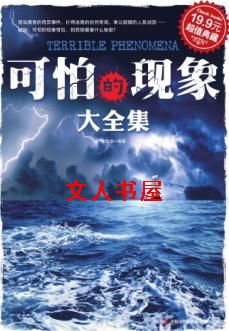英语语法大全-第17章
按键盘上方向键 ← 或 → 可快速上下翻页,按键盘上的 Enter 键可回到本书目录页,按键盘上方向键 ↑ 可回到本页顶部!
————未阅读完?加入书签已便下次继续阅读!
典型例题
1)Itwaslastnight___Iseetheet。
A。 thetime B。 when C。 that D。 which
答案C。强调句的结构是:It+be+强调部分+that(who)+主谓句。 强调句的连词只有两个,that和who。当强调的部分是人,且为句子的主语时,才用〃who〃,其余用that。
原句: Myfatherdidtheexperimentinthelabyesterdayevening。
强调主语:Itwasmyfatherwhodidtheexperimentinthelabyesterdayevening。
强调宾语:Itwastheexperimentthatmyfatherdidinthelabyesterdayevening。
强调时间:Itwasyesterdayeveningthatmyfatherdidtheexperimentinthelab。(注意不用when)
强调地点:Itwasinthelabthatmyfatherdidtheexperimentyesterdayevening。
2)Itistenyears___MissGreenreturnedtoCanada。
A。that B。when C。since D。as
答案C。考点是连词用法。本题易误选为A。that。其实本句不是强调句。若是,去掉It be…that还应是一个完整的句子。而本句去掉'Itis…that',只剩下tenyearsMissGreenreturnedtoCanada。不成句。因此本句不是强调句。
Itis/was+时间+since… 其中ishasbeen washadbeen。
13。4用助动词进行强调
强调句还有一种类型,就是用助动词do(did,does)强调谓语。
Shedoeslikethishorse。 她的确喜欢这匹马。
Pleasedotakecareofyourself。千万保重。
13。5反意疑问句
1) 陈述部分的主语是I,疑问部分要用aren'tI。
I'mastallasyoursister,aren'tI?
2) 陈述部分的谓语是wish,疑问部分要用may+主语。
Iwishtohaveawordwithyou;mayI?
3) 陈述部分用no;nothing;nobody;never;few;seldom;hardly;rarely;little等否定含义的词时,疑问部分用肯定含义。
TheSwedemadenoanswer;didhe/she?
Someplantsneverblown(开花);dothey?
4) 含有oughtto的反意疑问句,陈述部分是肯定的,疑问部分用shouldn't/oughtn't+主语。
Heoughttoknowwhattodo;oughtn'the?/shouldn'the?
5) 陈述部分有haveto+v。(hadto+v。),疑问部分常用don't+主语(didn't+主语)。
Wehavetogetthereateighttomorrow;don'twe?
6) 陈述部分的谓语是usedto时,疑问部分用didn't+主语或usedn't+主语。
Heusedtotakepicturesthere;didn'the?/usedn'the?
7) 陈述部分有hadbetter+v。疑问句部分用hadn'tyou?
You'dbetterreaditbyyourself;hadn'tyou?
8) 陈述部分有wouldrather+v。,疑问部分多用wouldn't+主语。
Hewouldratherreadittentimesthanreciteit;wouldn'the?
9) 陈述部分有You'dliketo+v。疑问部分用wouldn't+主语。
You'dliketogowithme;wouldn'tyou?
10)陈述部分有must的疑问句,疑问部分根据实际情况而定。
Hemustbeadoctor;isn'the?
YoumusthavestudiedEnglishforthreeyears;haven'tyou?/didn'tyou?
Hemusthavefinishedityesterday;didn'the?
11)感叹句中,疑问部分用be+主语。
Whatcolours;aren'tthey?
Whatasmell;isn'tit?
12) 陈述部分由neither…nor;either…or连接的并列主语时,疑问部分根据其实际逻辑意义而定。
NeitheryounorIamengineer;arewe?
13) 陈述部分主语是指示代词或不定代词everything;that;nothing;this;疑问部分主语用it。
Everythingisready;isn'tit?
14) 陈述部分为主语从句或并列复合句,疑问部分有三种情况:
a。并列复合句疑问部分,谓语动词根据邻近从句的谓语而定。
Mr。SmithhadbeentoBeijingforseveraltimes;heshouldhavebeeninChinanow;shouldn'the?
b。带有定语从句,宾语从句的主从复合句,疑问部分谓语根据主句的谓语而定:
Heisnotthemanwhogaveusatalk;ishe?
HesaidhewantedtovisitJapan;didn'the?
c。上述部分主句谓语是think;believe;expect;suppose;imagine等引导的定语从句,疑问部分与宾语从句相对应构成反意疑问句。
Idon'tthinkheisbright;ishe?
Webelieveshecandoitbetter;can'tshe?
15)陈述部分主语是不定代词everybody;anyone;somebody;nobody;noone等,疑问部分常用复数they,有时也用单数he。
Everyoneknowstheanswer;don'tthey? (doeshe?)
Nobodyknowsaboutit;dothey?(doeshe?)
16)带情态动词dare或need的反意疑问句,疑问部分常用need(dare)+主语。
Weneednotdoitagain;needwe?
Hedarenotsayso;dareyou?
当dare;need为实义动词时,疑问部分用助动词do+主语。
Shedoesn'tdaretogohomealone;doesshe?
17) 省去主语的祈使句的反意疑问句,疑问部分用willyou。
Don'tdothatagain;willyou?
Gowithme;willyou/won'tyou?
注意:Let's开头的祈使句,后用shallwe?
Letus开头的祈使句,后用willyou?
Let'sgoandlistentothemusic;shallwe?
Letuswaitforyouinthereading…room;willyou?
18) 陈述部分是〃therebe〃结构的,疑问部分用there省略主语代词。
Thereissomethingwrongwithyourwatch;isn'tthere?
Therewillnotbeanytrouble;willthere?
19) 否定前缀不能视为否定词,其反意疑问句仍用否定形式。
Itisimpossible;isn'tit?
Heisnotunkindtohisclassmates;ishe?
20) must在表〃推测〃时,根据其推测的情况来确定反意疑问句。
Hemustbetherenow;isn'the?
Itmustbegoingtoraintomorrow;won'tit?
快速记忆表
陈述部分的谓语 疑问部分
I aren'tI
Wish may+主语
no;nothing;nobody;never;
few;seldom;hardly; 肯定含义
rarely;little等否定
含义的词
oughtto(肯定的) shouldn't/oughtn't+主语
haveto+v。(hadto+v。) don't+主语(didn't+主语)
usedto didn't+主语或usedn't+主语
hadbetter+v。 hadn'tyou
wouldrather+v。 wouldn't+主语
you'dliketo+v。 wouldn't+主语
must 根据实际情况而定
感叹句中 be+主语
Neither…nor;
either…or连接的根 据其实际逻辑意义而定
并列主语
指示代词或不定代词
everything;that; 主语用it
nothing;this
并列复合句 谓语根据邻近从句的谓语而定
定语从句;宾语从句的
主从复合句 根据主句的谓语而定
think;believe;expect;
suppose;imagine等引导 与宾语从句相对应的从句
everybody;anyone;
somebody;nobody;noone 复数they;单数he
情态动词dare或need need(dare)+主语
dare;need为实义动词 do+主语
省去主语的祈使句 willyou?
Let's开头的祈使句 Shallwe?
Letus开头的祈使句 Willyou?
therebe 相应的谓语动词+there(省略主语代词)
否定前缀不能视为否定词 仍用否定形式
must表〃推测〃 根据其推测的情况来确定反意疑问句
14。倒装
14。1倒装句之全部倒装
全部倒装是只将句子中的谓语动词全部置于主语之前。此结构通常只用与一般现在时和 一般过去时。常见的结构有:
1)here;there;now;then;thus等副词置于句首;谓语动词常用be;e;go;lie;run。
Theregoesthebell。
Thencamethechairman。
Hereisyourletter。
2)表示运动方向的副词或地点状语置于句首,谓语表示运动的动词。
Outrushedamissilefromunderthebomber。
Aheadsatanoldwoman。
注意:上述全部倒装的句型结构的主语必须是名词,如果主语是人称代词则不能完全倒装。
Herehees。 Awaytheywent。
14。1倒装句之全部倒装
全部倒装是只将句子中的谓语动词全部置于主语之前。此结构通常只用与一般现在时和 一般过去时。常见的结构有:
1)here;there;now;then;thus等副词置于句首;谓语动词常用be;e;go;lie;run。
Theregoesthebell。
Thencamethechairman。
Hereisyourletter。
2)表示运动方向的副词或地点状语置于句首,谓语表示运动的动词。
Outrushedamissilefromunderthebomber。
Aheadsatanoldwoman。
注意:上述全部倒装的句型结构的主语必须是名词,如果主语是人称代词则不能完全倒装。
Herehees。 Awaytheywent。
14。2倒装句之部分倒装
部分倒装是指将谓语的一部分如助动词或情态倒装至主语之前。如果句中的谓语没有助动词或情态动词,则需添加助动词do;does或did,并将其置于主语之前。
1) 句首为否定或




